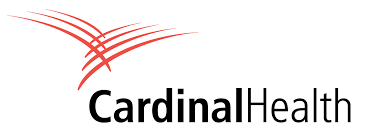
Cardinal Health details milestone year in biosimilars

In an annual report, the company revealed the impact of a dramatic increase in commercially available biosimilars and progress in the areas of patient accessibility and treatment affordability.
Cardinal Health released its 2024 Biosimilars Report: Insights on a pivotal year of evolution and expansion, an analysis of key recent economic, competitive, legislative, and societal developments in biosimilars.
According to a news release,1 the report outlines new treatments and legislative developments. The new treatments include adalimumab
In the report, Cardinal Health also offers the perspectives of retina specialists on biosimilars, ahead of the anticipated launch of several new biosimilars for retinal diseases.
Fran Gregory, PharmD, MBA, vice president, Cardinal Health Emerging Therapies, pointed out in the news release that it vital that all stakeholders of the healthcare ecosystem understand the significant benefits biosimilars offer to patients, providers, practices and payers alike.
"The savings generated by biosimilars will play an increasingly important part in creating a balance between funding innovative new treatments and reducing the overall financial burden on the healthcare system,” Gregory said in the news release. “This report offers critical context on this rapidly changing clinical and market landscape, and the role biosimilars will play in increasing the accessibility and affordability of care."
Moreover, the company details major developments over the last year in biosimilars, offering expert commentary and provider perspectives on a rapidly changing industry landscape. Featuring new research derived from surveys and expert interviews, the report offers new insights into market growth, drivers of biosimilar adoption and remaining barriers to widespread uptake.
The company points out that 2024 is likely to be a key for
According to the survey, about 80% of participants said they are "extremely" or "very" familiar with biosimilars, though fewer than 60% have prescribed a biosimilar for the treatment of a retinal disorder.
Moreover, 82% of retina specialists said they would be "very" or "somewhat" more likely to prescribe biosimilars if they became a payer's preferred drug. Notably, the research also suggests widespread belief in biosimilars' potential impact on healthcare system sustainability, with 75% of participants agreeing that biosimilars can improve healthcare system sustainability.1
In addition to this new research, the company’s survey also includes in-depth analysis of:
- The evolving payer landscape
- Emerging best practices for managing biosimilar inventory
- How biosimilars are promoting access and healthcare system sustainability
- The biosimilars product pipeline
The report is
Reference:
Health C. Cardinal Health annual research report examines milestone year in biosimilars. www.prnewswire.com. Accessed February 29, 2024. https://www.prnewswire.com/news-releases/cardinal-health-annual-research-report-examines-milestone-year-in-biosimilars-302075391.html
Newsletter
Don’t miss out—get Ophthalmology Times updates on the latest clinical advancements and expert interviews, straight to your inbox.





























